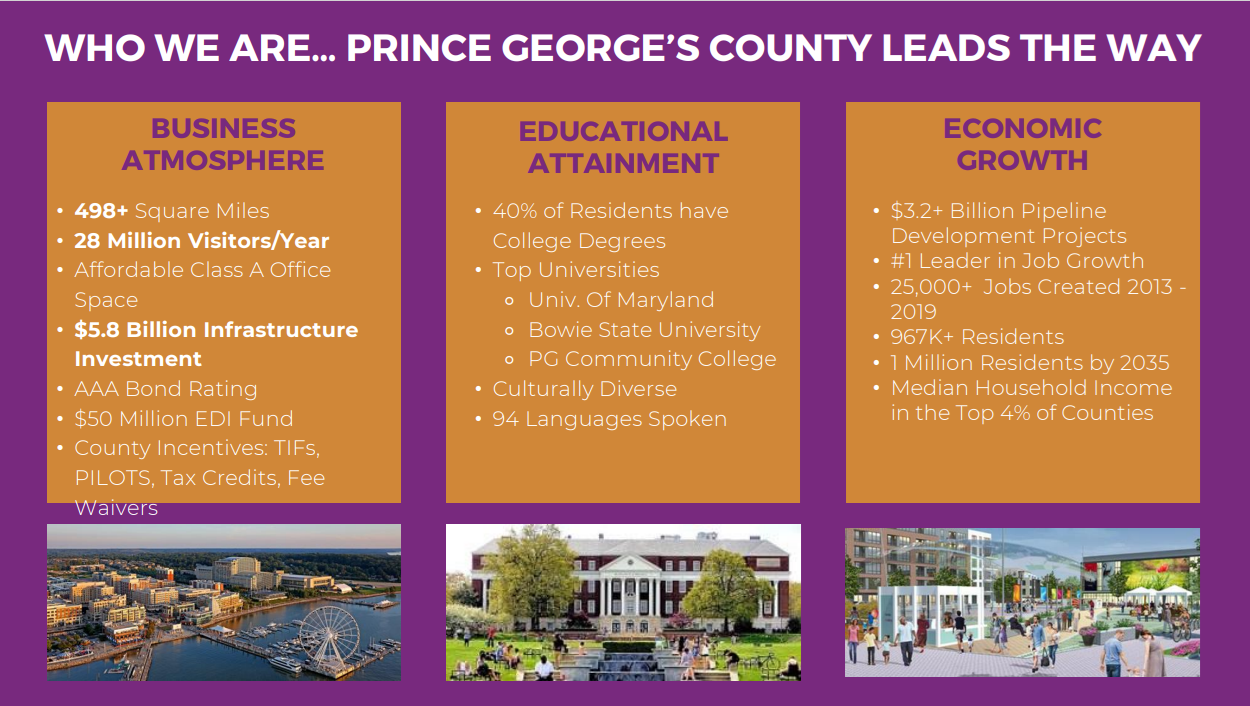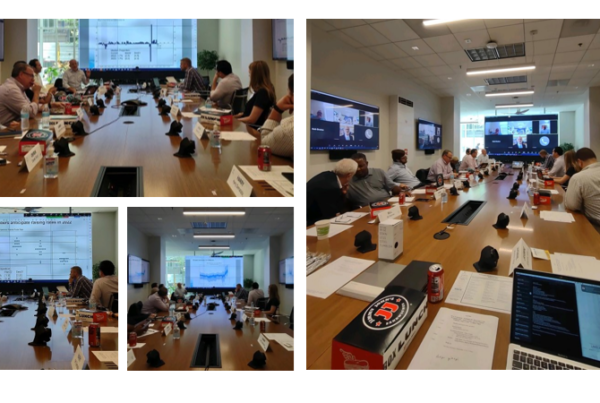Washington DC June 2022 Key Take Aways
Derek Ford – Washington DC Economic Development Partnership
- Highlight in D.C. is Walter Reed Armed Forces Retirement Center redevelopment/repurposing. The city is focused on St. Elizabeth’s as well.
- Restaurant RFPs are coming up as well as some micro-level grants and proprietary funds. Giving different approaches to grants.
Marc Tasker – NAI KLNB
- Industrial is at 2% vacancy.
- With the Amazon scale back, some local areas are seeing a leasing pullback per overspending on the statistical side. Less megacorp pressure is beneficial to local competitors.
- The capital markets on the industrial side are calming, while on the financing side there is some pressure on those deals. (E.g., with one project, there was a line of four with three buyers falling out)
- For the first time in a few years, there are concerns. However, rates are still historically strong and will likely be passed to the consumer soon!
Brian Ball – NAI KLNB
- Highest vacancy factor in his career here in Washington DC at 18-20% depending on sublet space added in. Sublets are falling out as an option and becoming shadow spaces. Typically sub 10%.
- Investment sales are at high rates now with a lot of buyer interest. They presume they will be able to take care of the owner’s hardship. There have not been a lot of foreclosure property deals.
- The layering of the office and amenities is becoming typical. (E.g., A good “Class A” with workout, coffee, concierge, and meeting spaces = 60$ a foot and up) Therefore, Capital market interest in office properties is oriented towards the transition of the offices to a higher class.
- There are physical and economic barriers to the functionality of “office to residential”. Construction costs are high and a limiting factor. This would be a good time for the GSA to play in this market overall in D.C.
Chris LeBarton and Nicholas Mills – CoStar Group
- From Albany, Hartford, and Richmond to Boston all these markets are seeing similar market issues.
- Multi-Family liquidity is up and red hot. There is an investor hope expressed in their deals that may be a 5–10-year market forecast. A lot of kicking the can down the road.
- Trying to see if there is a consolidation with the GSA properties via new leadership.
Janisha Richardson – Right Commercial Lending
- A lot of lenders are getting stricter and asking for more reserves and requiring better credit scores over 680 on all equity partners as well as requiring more experience from these partners.
- Lending for housing. However, it cannot be a primary residence, it has to be an investment property with a deal size of a minimum of 100K to 50M.
Keenan Woofer – NAI KLNB
- Clients will need to rethink old school warehouses and lower their expectations of what is available. Finding alternative solutions in the flex product count on the market will help to bump up your tenant rates.
Faraji Whalen – Civitas Commercial Real Estate.
- Between 2008 and 2022 we are in this same flux however the form is different.
- Greens Street, DC, LA, San Fran is going to see a great rental market reflecting a return to the coast.
- Suitland Maryland will expand from 8,000 employees to 20,000 “hotel employees” (a visiting employee model).
- The best location is residential in the node around smaller buildings with blocks that can be chopped up.
Charlotte Troup Leighton – Chicago Title
- The hotel sector market is moving, and the order count is increasing. 330 titles count in a month with a lot of businesses imported from other offices to meet the demand in other regions.
Bill Barnes – Barnes Real Estate Co
- Pushing out as far out as Harrison to find tracts of land.
- Fairfax County is pushing against infill and single-family zoning.
- Arlington County is also considering multi-unit 6-8 units on the quarter-acre lot to densify. It is happening with considerable pushback. Affordable housing in Fairfax County is a major focus, and they are hovering around 12-20% density for this consideration.
Andrew Cooper – Van Ness Feldman
- The attorney general is pursuing any environmental enforcement aspects of deals, and this is frustrating developers.
- For the OAG, litigation is not an added expense as it is for the developer, and the OAG utilizes this pressure.
- It is getting more difficult to do business in DC.






Recent Comments